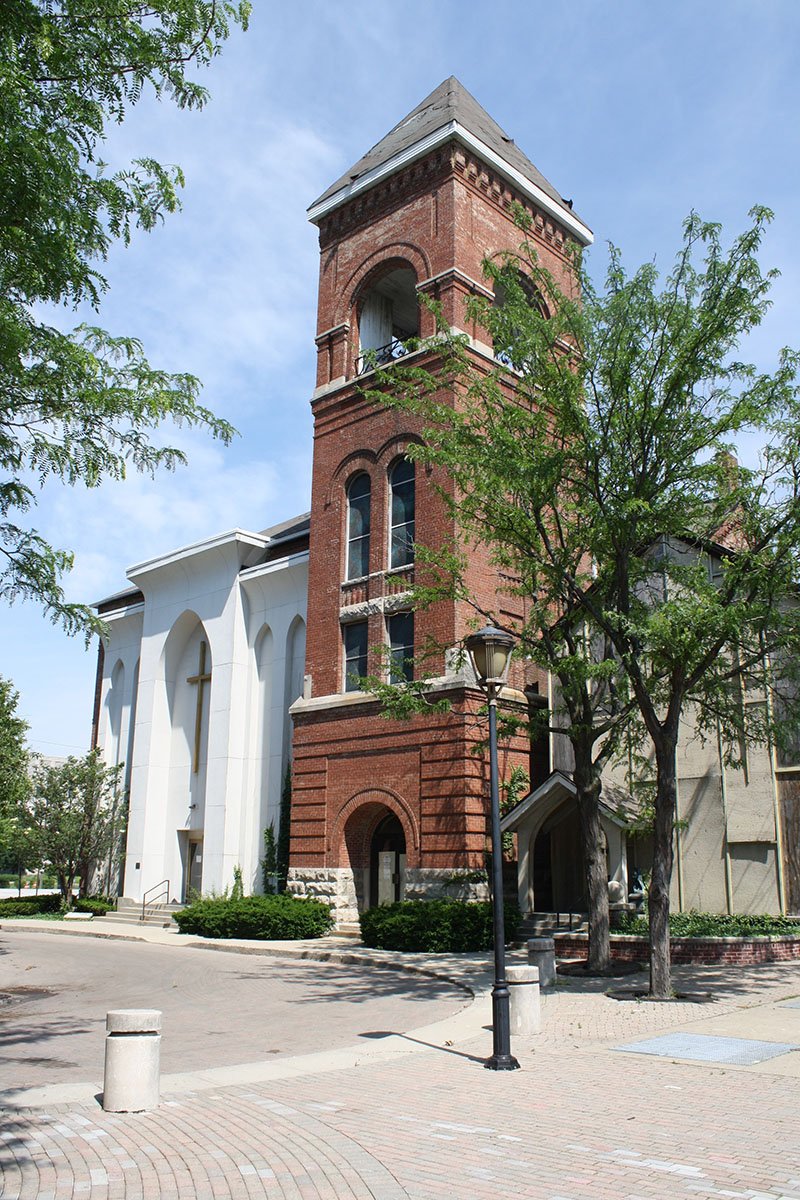2. African American Heritage Vital Part of Indianapolis Story
James Glass
Column that appeared in the Indianapolis Star onAfrican Americans have been an important part of the Indianapolis story since the city was founded, but until recently African American heritage has tended to be under-appreciated and under-preserved. The historic center of the Black community—the northwest section of downtown Indianapolis—has lost many of its landmarks and neighborhoods, and the records of families, businesses, churches, schools, and social organizations have frequently not been preserved.
During the last twenty years, there has been a movement in the African American community to preserve its heritage, and today there are multiple locations where people can learn about Black history and experience places where African American history happened. The former Crispus Attucks High School, 1140 Dr. Martin Luther King, Jr. Street, despite its beginnings as a segregated school, has become a symbol of African American accomplishments in Indianapolis. In 1986, in response to strong lobbying by alumni and friends of Attucks, the Indianapolis Public Schools kept the school operating as a junior high, and plans were made to open a museum of African American heritage there. Under the guidance of curator Gilbert L. Taylor, the Crispus Attucks Museum opened in 1998 and today presents exhibits on the history of Attucks, the championship Crispus Attucks basketball teams, and the history of Africa. The curator says that both the museum and the school itself, with its pictures in the hallways of graduating classes since 1928, show visitors the outstanding accomplishments of Attucks students, who were guided by some of the most talented faculty in the state. Attucks principals and teachers stressed high academic achievement and leadership, and many graduates achieved greatness in their professions.
In the historic Walker Building at 617 Indiana Avenue, the Madame Walker Theatre Center both highlights the history of the building itself and operates a living center of African American arts and culture in the city. Visitors can experience the grand Walker Theatre of 1927, with its majestic interior decorated with African motifs; the Casino Ballroom, where weekly Jazz on the Avenue performances are held and nationally known African American artists perform; and a bookshop and museum with exhibits on the life of Madame C. J. Walker, one of the first African American industrialists and philanthropists in the United States.

Bethel AME Church, 2017. James Glass.
At the Bethel A.M.E. Church, 414 W. Vermont Street, the oldest African American church in Indianapolis, the congregation has served as a center for the Black community since the 1860s. The Rev. John T. Lambert, the current pastor, says that the congregation loves the location and has made a decision to stay in their historic building. Miss Frances Stout, the 97-year old historian of the church, says that the church served as the “town hall” for the African American community during the segregation era, and many important religious, civic, and social conventions were held in its spacious sanctuary. Many prominent civic leaders were members of the church, and their accomplishments are remembered by older members.
Between Dr. Martin Luther King Street and Indiana Avenue, south of 10th Street, survives part of the large African American neighborhood that once existed in northwestern downtown Indianapolis. Under the leadership of historic preservation pioneers Jean Spears and Claudia Polley, the Ransom Place neighborhood has been preserved and revitalized. On Martin Luther King Street, the Spears family has restored an early historic house and opened a Heritage Learning Center where school children and adults can learn about the history of African Americans in Indianapolis and Ransom Place.
Much awareness of the importance of historic places has been raised by the African American Landmarks Committee of Historic Landmarks Foundation of Indiana. Formed in 1992, the committee has assisted in the protection and preservation of Ransom Place and part of Indiana Avenue and placed historical markers for African American sites. Committee chair Dr. William Wiggins, Jr. says the committee plans to help develop a Martin Luther King Heritage Trail in downtown Indianapolis and collaborate with other African American heritage organizations.
One of the most important repositories for African American records is the Indiana Historical Society, where Wilma L. Gibbs, Archivist for African American History, has assembled major research collections from the Indianapolis community, including the Madame Walker collection, the George Stewart Papers, and the Indianapolis Recorder photograph collection, and coordinated publication of articles and books about Black history.
Finally, in the area of family history, Donna Stokes-Lucas, owner of the Xpressions Bookstore and Gallery downtown, has founded the Indiana African American Genealogy Group, which promotes preservation of family records and research in genealogy libraries and archives in the state. She says that there are many older people with fascinating stories to tell, and younger people need to interview them.
